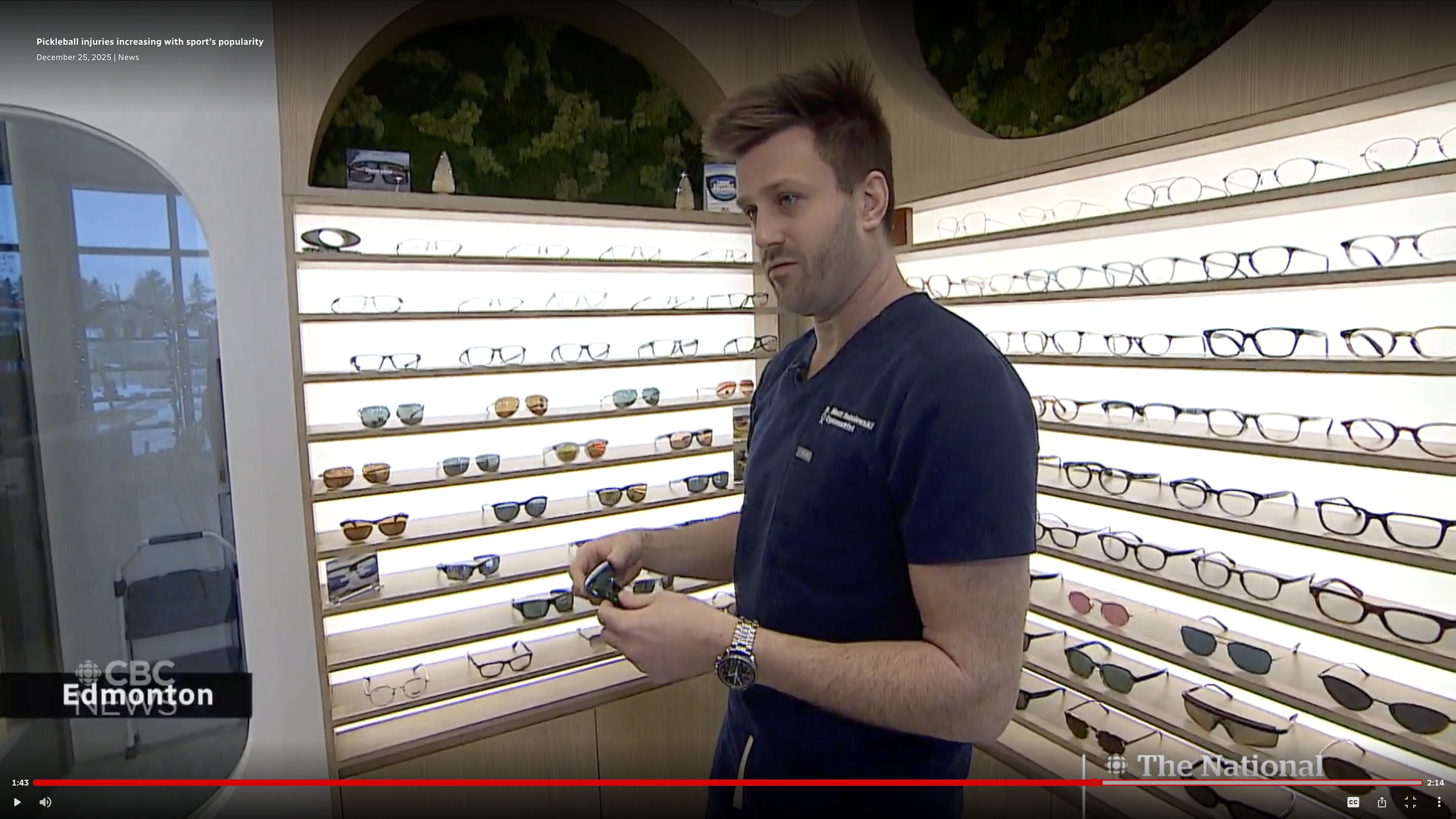Dispelling the Myth: Why You May Still Need Eyeglasses After Cataract Surgery
Cataract surgery is a remarkable medical advancement that has transformed the lives of countless individuals suffering from the clouding of the natural lens. It promises clearer vision and improved quality of life.
However, a common misconception surrounds cataract surgery – the belief that it eliminates the need for eyeglasses. As an optometrist who has done thousands of post-operative eye exams over the years, I can tell you this is the biggest myth surrounding cataract surgery.
Myths like the belief that cataract surgery eliminates the need for eyeglasses can deter individuals from seeking treatment out of embarrassment when they realize the reality falls short of their expectations.
In this blog post, we'll explore the truth behind this myth and explain why most patients post-cataract surgery still need to rely on eyewear for specific activities, even if it's only for part-time usage. The cataract surgeon did not mess up if you still need glasses after surgery.
The Cataract Surgery Journey
Cataracts are a natural part of aging, causing vision impairment over time. Cataract surgery involves the removal of the cloudy natural lens and its replacement with an intraocular lens (IOL). This procedure has been highly successful in restoring vision and reducing the impact of cataracts like glare and blurry vision.
Reducing Dependency on Eyewear
One of the benefits of cataract surgery is that a cataract surgeon can place an intraocular lens (IOL) that can help to compensate for your eyeglass or contact lens prescription. As such, cataract surgery can indeed reduce your dependency on eyewear. Many patients report immediate improvements in their distance vision, and some may feel like they no longer need glasses for activities like watching television or driving during the day.
New premium IOLs aim to reduce dependence on eyeglasses after cataract surgery further. Still, it's crucial to remember that they do not enhance the safety of the operation, and paying for these enhanced IOL lenses is to try to reduce your dependency on eyewear.
Some of the IOL options include:
Monofocal IOLs: These lenses are excellent for distance vision, but they may not correct issues with close-up vision (presbyopia). After surgery, patients with monofocal IOLs often require reading glasses for activities like reading, using smartphones, doing computer work, or just eating dinner. Residual astigmatism, however, may remain, and there may be an imbalance between the two eyes. Many people also become frustrated taking reading glasses on and off all day and returning to their progressive lenses. With Monofocal IOLs, you will most certainly require reading glasses. You may also require distance correction for driving that corrects any residual astigmatism, myopia or hyperopia.
Astigmatism: Cataract surgery can address astigmatism by choosing toric IOLs or combining cataract surgery with astigmatism-correcting procedures. While this can significantly improve vision, some residual astigmatism may remain, necessitating glasses for crisp vision. We find that most patients get about a 75-80% improvement in their astigmatism correction. Similar to Monofocal IOL's, you will most certainly require reading glasses and may also require distance correction for driving that corrects any residual astigmatism, myopia or hyperopia.
Multifocal, Extended Vision or Accommodating IOLs: These advanced lenses offer a broader range of vision, potentially reducing the need for eyeglasses. However, they may not provide the same level of clarity or contrast as monofocal or astigmatism IOLs for distance vision. This is especially true for low-light environments, like driving at night. It may also be challenging for an optometrist to give you a new prescription for eyeglasses or contact lenses that can help to correct this low clarity or contrast.
The Reality of Post-Cataract Surgery Eyeglasses
It's crucial to understand that cataract surgery does not guarantee complete freedom from eyeglasses. In fact, most patients will find that they still require glasses for specific tasks. These may include:
Reading: Presbyopia, the natural age-related loss of near vision, often requires reading glasses after cataract surgery.
Driving at Night: Even with excellent 20/20 distance vision, some patients may still experience glare and halos when driving at night, which can be improved with eyeglasses.
Fine-Tuning: Sometimes, patients may need minor prescription adjustments to fine-tune their vision post-surgery. Most of the time, we can get a very accurate prescription within 4-6 weeks of the surgical date, but we still tend to see changes for 12-24 months as the new IOL settles into the capsular bag within the eye.
Light sensitivity: Most people are very light-sensitive after cataract surgery because of the increased amount of light that enters the eye. As such, people may elect to use prescription sunglasses, polarized driving glasses, or photochromatic transition-style lenses.
Conclusion
Cataract surgery is a vision-changing procedure that can significantly enhance your overall quality of life. However, it's essential to approach the surgery with realistic expectations. While it can dramatically reduce your dependency on eyeglasses, it's rare for it to eliminate the need for them completely.
Your optometrists and ophthalmologist will work closely with you to choose the right IOL and treatment plan based on your unique needs and lifestyle. The key to a successful post-cataract surgery experience is open communication with your eye doctors and a clear understanding of what to expect. Ultimately, while you may still find yourself reaching for your glasses occasionally, the improved clarity and quality of life that cataract surgery provides make it a worthwhile journey for those who need it.
Disclaimer: The content provided in this blog post by Helio Optometry eye care clinic in Edmonton is intended solely for informational purposes and does not replace professional medical advice, diagnosis, or treatment by a Licensed Optometrist. No doctor/patient relationship is established through the use of this blog. The information and resources presented are not meant to endorse or recommend any particular medical treatment. Readers must consult with their own healthcare provider regarding their health concerns. Helio Optometry and its optometrists do not assume any liability for the information contained herein nor for any errors or omissions. Use of the blog's content is at the user's own risk, and users are encouraged to make informed decisions about their health care based on consultations with qualified professionals.








